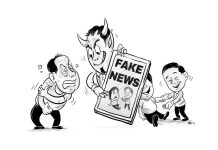
LAST WEEK, Beijing announced sweeping export controls on various rare earths as well as the technologies for extracting and processing them. These include holmium, erbium, thulium, europium, and ytterbium, minerals most people reading this probably never heard of but are critical for modern technology.
This was done deliberately, as a strategy or, as some may claim, a bluff. United States President Donald Trump naturally retaliated with more tariffs the next day, and one can only guess what the situation will be when this article has been published.
China has an overwhelming and indisputable control over rare earth production. That is not surprising, given the country’s manufacturing prowess, but it’s not as powerful as they might think.
Rare earths, or even rare earth processing, is not that special. The West could replicate it in a matter of months, according to many analysts.
The only thing standing in the way are environmental regulations, which China largely does not need to worry about. Remove those and the Rare Earths industry could return.
But rare earths are not the only issue here. It goes further than that. The Chinese have weaponized supply chains, and the world is going to remember what they have just done.
Just as countries have become wary of the Americans weaponizing the dollar, countries will be wary of Chinese-made products, and will start trying to find alternatives.
China was brought into the World Trade Organization (WTO) under the assumption that they would not do things like this. Now, that they have, the pace towards decoupling has only accelerated, with many countries forced to choose between China and the US.
This is economic war, and those wary of China will look at rare Earth export controls as a precedent for other products. What if China puts export controls on cars, machine tools, chemicals, etc… What then?
The PRC’s announcement last week marks another nail in the coffin of globalism and international free trade./PN







